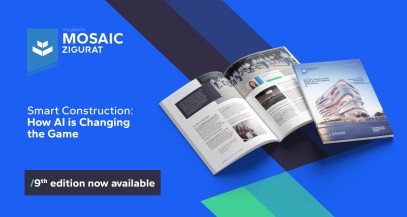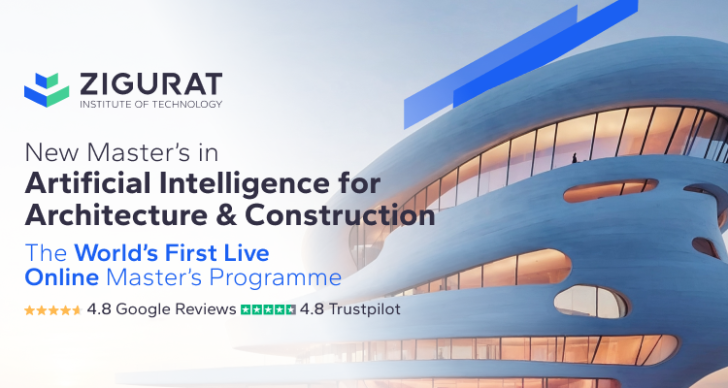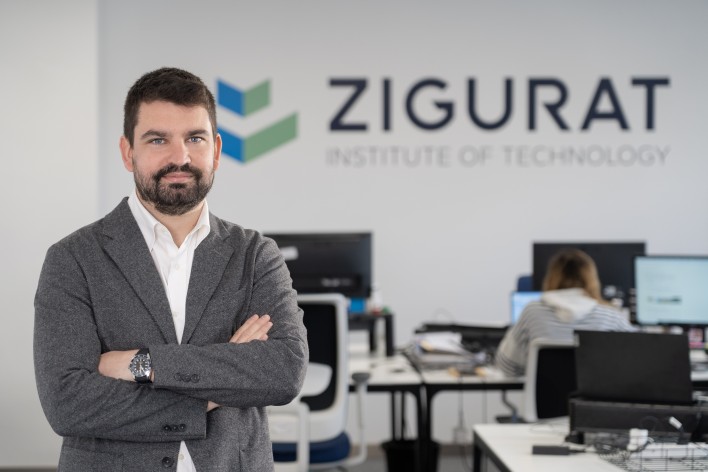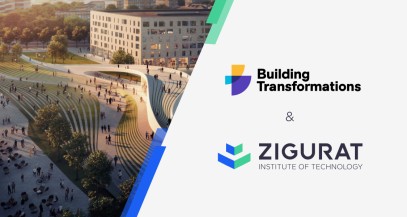
Actualidad / Corporate & Institutional
ZIGURAT launches the world’s first global online master’s in AI in Construction
Categories

ZIGURAT Institute of Technology is announcing the launch of the world’s first global online Master's in AI in Construction. With an international focus, the programme explores the most advanced applications of AI in Construction, Architecture and Engineering, and provides professionals with the tools to lead the revolution in the sector.
“Introducing AI in construction will inevitably transform a sector that has hitherto been traditional and poorly digitised. We are at the beginning of a revolution, where we will soon observer a paradigm shift in the way we approach every phase of the construction process,” said Fernando Iglesias Gamella, architect and Director of the Spanish version of the master's programme.
ZIGURAT was a pioneer in 2013 by offering the first online master’s in BIM (building information modelling), the methodology now widely recognised and implemented by construction companies and many European governments. Now, the institution is once again blazing a trail by being the first to offer an online master’s programme entirely focused on the new artificial intelligence tools.
“At ZIGURAT we position ourselves at the crest of AEC professional training, with students from over 120 countries. With the new AI master’s, we equip architects and engineers with the skills, tools and resources they need to design and build the buildings and cities of the future,” explained Pau F. Aldomà, CEO of ZIGURAT Institute of Technology.
The programme is divided into four modules, covering everything from the fundamentals of AI and programming to its application in BIM, generative design, project management and smart cities. In addition, it delves into tools such as generative machine learning and natural language processing applied to architectural processes.
“The application of AI in construction transforms the entire construction process. It accelerates decision-making, streamlines repetitive tasks, refines the design process, improves the accuracy of cost estimates, and produces better plans and graphical representations,” said Fernando Iglesias. “In the master’s we ensure that professionals are trained in each of these areas,” he added.
International Character and Practical Focus
The Master’s in AI in Construction lasts one academic year and is delivered in three languages (Spanish, English and Portuguese). From the very start, students begin working on a practical Master’s Final Project (TFM), in which they must create an AI-based solution, whether for building projects or urban planning.
The master’s is offered in a live online format, which encourages debate, the formation of transnational work teams and networking among the participating professionals and executives.
“ZIGURAT Institute of Technology’s AI master’s also updates its content in real time to reflect the latest sector advances. ZIGURAT’s eminently practical approach means that students can apply their knowledge to real projects on which they are already working,” explained Pau.
The programme in AI in Construction features a team of academic directors who are benchmarks in the sector, including Fernando Iglesias Gamella (Spanish version); Lilian Ho (English version), AI & Digital Leader in the AECO sector; and Ítalo Guedes (Portuguese version), consultant at IG Consultoria and a leader in integrating AI into project management.
Registrations are now open for the first edition of the programme, which will commence in November 2025.

Pau F. Aldomà, CEO of ZIGURAT Institute of Technology
AI in Construction as a Driver of Transformation
ZIGURAT, as a reference in technological training applied to Architecture, Engineering and Construction, has developed this master’s programme based on the experience of its previous postgraduate programmes in AI, Parametric Design and Visual Programming, consolidating a rigorous and proven curriculum. With this launch, the institution reaffirms its commitment to innovation and educational excellence.
“The impact of AI on construction is undeniable – from the automatic generation of plans and technical documentation to the optimisation of budgets through predictive analysis tools. This technology will undoubtedly improve the efficiency, sustainability and safety of projects. For that reason, training in these disruptive new tools represents a great opportunity for architects and engineers to maximize their productivity and enhance the creativity and quality of their projects. Also, this type of training enables the development of highly sought-after and well-remunerated professional skills, which will allow them to progress significantly in their careers,” concluded Pau Farré.
“We are on the threshold of a new era in architecture and construction, driven by Artificial Intelligence. This technology not only optimises processes but is revolutionising the way we conceive, design and manage the projects of the future,” concluded the director of ZIGURAT.


